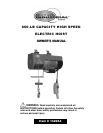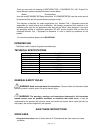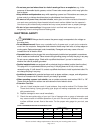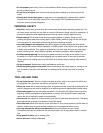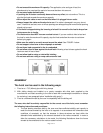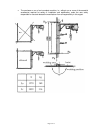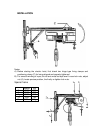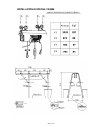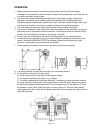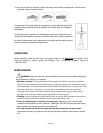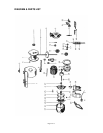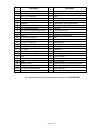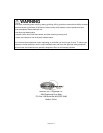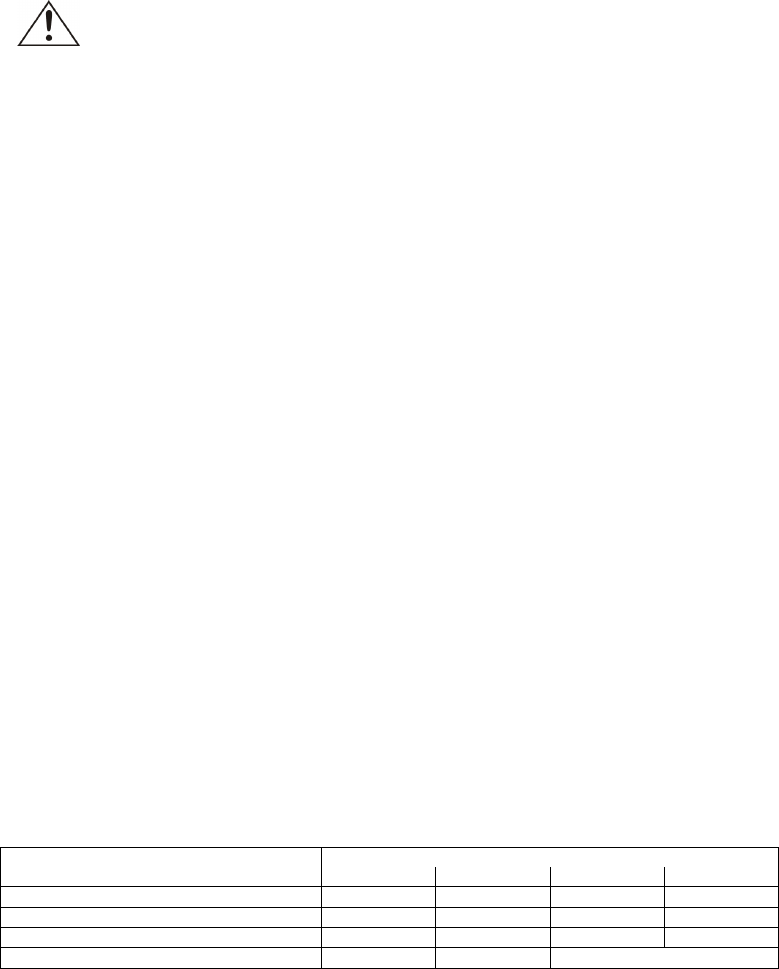
Page of 13
3
• Do not use your tool where there is a risk of causing a fire or an explosion; e.g. in the
presence of flammable liquids, gasses, or dust. Power tools create sparks, which may ignite the
dust or fumes.
• Keep children and bystanders away while operating a power tool. Distractions can cause you
to lose control, so visitors should remain at a safe distance from the work area.
• Be aware of all power lines, electrical circuits, water pipes and other mechanical hazards in
your work area, particularly those hazards below the work surface hidden from the operator’s
view that may be unintentionally contacted and may cause personal harm or property damage.
• Be alert of your surroundings. Using power tools in confined work areas may put you
dangerously close to cutting tools and rotating parts.
ELECTRICAL SAFETY
•
WARNING!
Always check to ensure the power supply corresponds to the voltage on
the rating plate.
• Do not abuse the cord. Never carry a portable tool by its power cord, or yank tool or extension
cords from the receptacle. Keep power and extension cords away from heat, oil, sharp edges or
moving parts. Replace damaged cords immediately. Damaged cords may cause a fire and
increase the risk of electric shock.
• Grounded tools must be plugged into an outlet properly installed and grounded in accordance
with all codes and ordinances. Never remove the grounding prong or modify the plug in any way.
Do not use any adapter plugs. Check with a qualified electrician if you are in doubt as to
whether the outlet is properly grounded.
• Double insulated tools are equipped with a polarized plug (one blade is wider than the other).
This plug will fit in a polarized outlet only one way. If the plug does not fit fully in the outlet,
reverse the plug. If it still doesn’t fit, contact a qualified electrician to install a polarized outlet. Do
not change the plug in any way.
• Avoid body contact with grounded surfaces such as pipes, radiators, ranges, and refrigerators.
There is an increase risk of electric shock if your body is grounded.
• When operating a power tool outside, use an outdoor extension cord marked “W-A” or “W.”
These cords are rated for outdoor use and reduce the risk of electric shock.
• Extension Cord Use.
A. Use only ‘Listed’ extension cords. If used outdoors, they must be marked “For Outdoor Use.”
Those cords having 3-prong grounding type plugs and mating receptacles are to be used
with grounded tools.
B. Replace damaged or worn cords immediately.
C. Check the name plate rating of your tool. Use of improper size or gauge of extension cord
may cause unsafe or inefficient operation of your tool. Be sure your extension cord is rated
to allow sufficient current flow to the motor. For the proper wire gauge for your tool, see
chart.
CHART FOR MINIMUM WIRE SIZE OF EXTENSION CORD:
Nameplate AMPS
CORD LENGTH
25' 50' 100' 150'
0-6 18 AWG 16 AWG 16 AWG 14 AWG
6-10 18 AWG 16 AWG 14 AWG 12 AWG
10-12 16 AWG 16 AWG 14 AWG 12 AWG
12-16
14 AWG 12 AWG (NOT RECOMMENDED)
If in doubt, use larger cord.
Be sure to check voltage requirements of the tool to your incoming power source.



